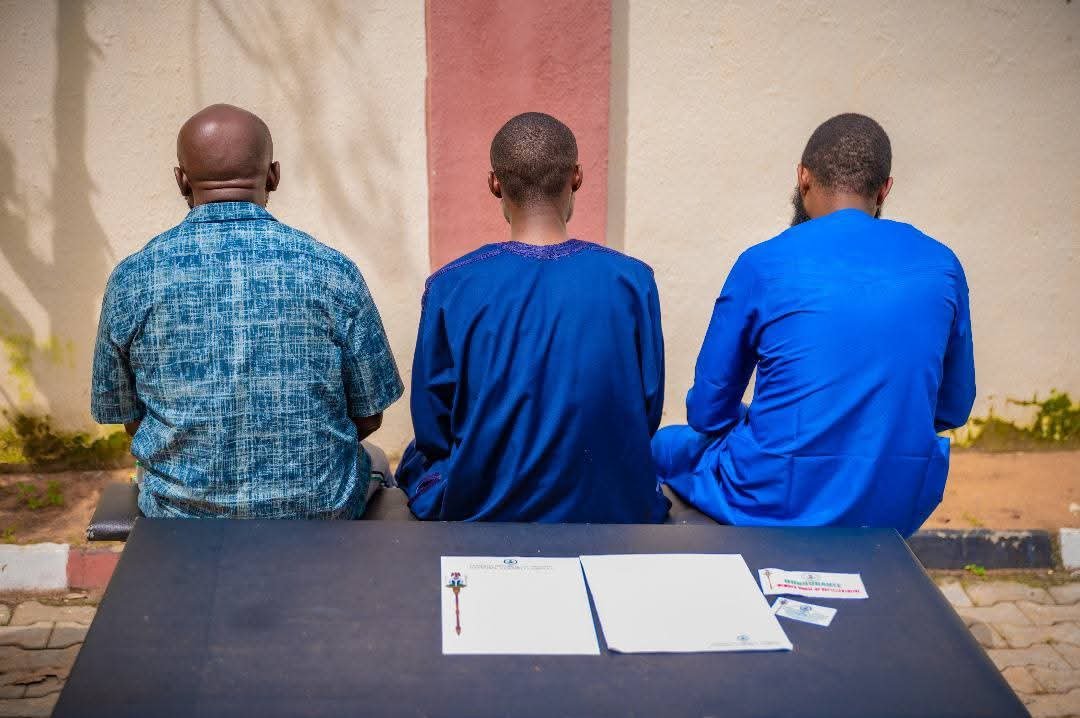Whiteink Institute for Strategy Education and Research (WISER), has urged the Federal Government to develop skilled workforce to tackle cyber threats.
It suggested the implementation of cyber security curricula across various sectors to develop the needed workforce.
The recommendation is contained in research report presented on Thursday at a policy advisory thematic lecture organised by WISER in Abuja.
Presenting the report, the Lead Research Assistant, Ms Azeeza Balogun said that Nigeria also needed to raise a cadre of cyber-diplomats to reflect African perspectives.
She said that there should be robust awareness to proactively position the country to take advantage of Artificial Intelligence (AI).
“Nigeria should assert control over digital platforms within its borders and invest in AI technology for its advantage in the long term.
“Investment in education is needed to enhance citizens’ understanding and use of information technology without compromising security,” she added.
The researcher, however, said that government needed to be cautious in its approach to securing the information space.
Balogun said the study also recommended that government should involve wide consultations to avoid “techno-authoritarianism”.
“It should ensure that the Social Media Regulation Bill and the National Broadcasting Commission (NBC) Bill do not infringe on the rights of citizens or restrict the civic space.
“Technology should be integrated into national power and seen as a tool in international relations.
“Nigeria should collaborate with international partners to address its information technology needs and adhere to best practices,” she added.
Balogun said that government needed to be aware of the increasing availability and use of information technology by citizens.
According to her, this is necessary in addressing its potential abuses and providing protection to both the state and its citizens.
The researcher said that policies developed should not be reactive but consistently predictive and proactive.
“Protecting individuals from online harassment, exploitation, and violence is crucial.
“Engaging with religious leaders and communities can help ensure ethical AI use and aligning technological advancements with societal values.
“Civil society should continue in its responsibility to protect citizens’ fundamental rights and efforts to promote responsible use of information technology.
“International partners should invest in evolving development of international laws and regulations that protect citizen’s rights while promoting technological advancements,” she added.
Earlier, the President of WISER, Brig.-Gen. Saleh Bala (Rtd), said the paradigm-shift from state-centric to human-centric purpose of government was getting better entrenched, yet with push backs from both sides of the divide.
He said while the internal dynamics of change within states continued to be contested among various interests, the international dimensions provided concerns over political and cultural dispositions to ideas considered alien to the ways of the people and states.
“Information technology as an enhancer/enabler of communication across human societies has become a confluence of multi-facetted and multidimensional ideas and interest.
“The rapid growth in innovation and adaptability it provides to individuals, groups and even societies remain of critical concern to governments at state, subregional, regional and global levels.
“State response has been the introduction of regulations and more regulations, which rather stifle society’s ability to exercise liberties and even their fundamental rights to expression and association in ways seeming to criminalise liberties.
“Civil society has been at the forefront of over sighting government’s effort and guarding the sanctity of the civic space, particularly in securing it from untoward usage and application of information technology capabilities to ensure rights of citizens are not abused,” he said.
Bala said it was the causes and effects and how the situation guarded and protected both state and citizens from a position of shared responsibility that necessitated the research.
He said the research facilitated understanding of the effects of exponential growth in developments and innovations in information technology.
The president said that it also explained how the collaboration of interests among conglomeration of users could make technology use more efficient and liberal without restricting and infringing on the rights of citizens.
Mr Khalil Halilu, the Executive Vice Chairman, National Agency for Science and Engineering Infrastructure (NASENI), said there has been growing concerns over the use of cyberspace and information technology.
He said the concerns bordered on terrorism, subversion, radicalism, electronic fraud, defamation, and other crimes that posed significant threats to stability, privacy, general safety, and development.
“It is crucial we address these challenges effectively to safeguard our nation and its citizens.
“I commend WISER for developing a project objective that seeks to tackle this issue head-on.
“Their approach, which includes desk research, stakeholder advocacy consultations, virtual programmes, policy-level round-table discussions, and public presentation of comprehensive report, demonstrates their commitment to thorough analysis and informed decision-making.
“The recommendations arising from this programme will undoubtedly contribute to the formulation of appropriate policies governing thematic security and related areas,” he said.
Halilu said the report would help in identifying weaknesses, strengths, and areas for improvement in thematic security and related fields.
The NASENI boss added that it would expand the global knowledge base and promote best practices in addressing threats to global peace.
He said the recommendations would also enhance understanding of critical domestic and international security issues and harness proper use of cyberspace and information technology for the benefit of all.





